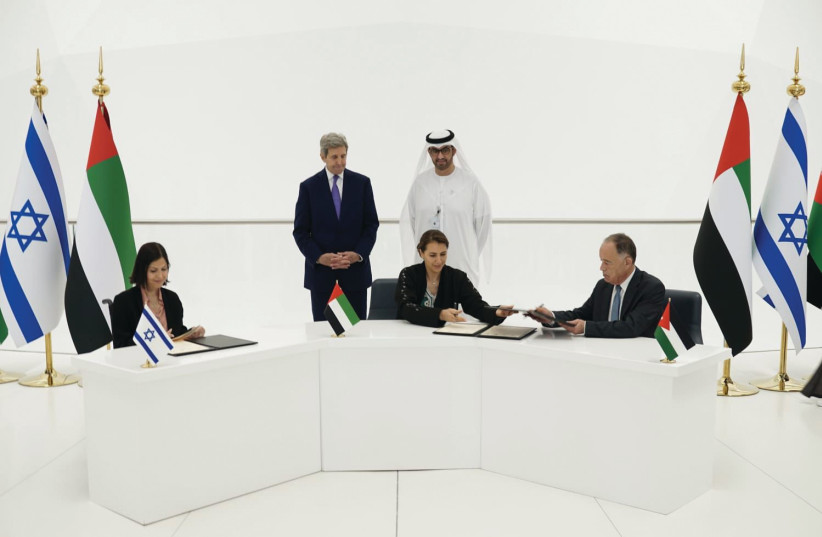Israel will halt its natural gas search and production in 2022 to make room for renewable energy resource use, Energy Minister Karin Elharrar (Yesh Atid) announced on Wednesday.
Elharrar announced the new policy at the Eilat-Eilot Renewable Energy conference.
Israel has managed to double its renewable energy input since June, Elharrar said.
"In the coming year we will focus on the future, on green energy, on energy optimization and on renewable energy, and while we do so we will put aside the development of natural gas, which, as is known, is short term solution," she said.
A natural gas policy paper that was circulated in June for public review recommended that the government act to promote the search for another gas field for the next ten years that will supply between 500-1000 billion cubic meters (BCM).
However, Elharrar made it clear that the Energy Ministry will not be adopting the policy paper and not will be launching a fourth tender for permits to search for natural gas.
The Energy Ministry will also open a new Renewable Energy branch, she said.
Elharrar and her Jordanian counterpart recently signed an agreement whereby Jordan will build a designated solar field and export 600 megawatts of electricity to Israel, and work on solar energy storage solutions while Israel will examine the possibility of exporting 200 million cubic meters of water to its eastern neighbor, which would come from a designated desalination plant.
The head of environmental protection NGO Homeland Guards, Yoni Sapir, praised the decision but called on Elharrar to completely stop the search for natural gas, and not just halt it.
"Every shekel or minute of attention paid to the advancement of the minerals gas industry will come at the expense of advancing renewable energy projects that we so desperately need, given Israel's deplorable state of affairs in international comparison, our systematic failure to meet targets so far and the climate crisis," he said.
"Any project that is set up now could stay with us for decades and delay Israel's transition to relying on a carbon-neutral economy."
The Natural Gas Association's response:
"The energy crisis plaguing Europe proves that alongside the necessary development of the renewable energy industry there is no choice but to continue the search for further discoveries of natural gas.
Anyone who wants to ensure energy security for the State of Israel knows that in the coming decades, natural gas will continue to be a top-notch energy source.
Contrary to the Minister's decision to close the sea to exploration in many Western countries, the United States and Norway are currently accelerating their efforts to seek more natural gas discoveries.
Natural gas helps reduce air pollution because it replaces polluting and harmful fuels like coal, diesel and fuel oil.
Thanks to natural gas, air pollution caused by electricity production has been reduced by more than 70%, and the use of coal and diesel in Egypt and Jordan has been reduced.
The Natural Gas Association calls on the Ministry of Energy to continue making every effort to promote the field of renewable energy while maintaining the energy security that natural gas provides to the citizens of Israel. "
The Environment and Climate Change portal is produced in cooperation with the Goldman Sonnenfeldt School of Sustainability and Climate Change at Ben-Gurion University of the Negev. The Jerusalem Post maintains all editorial decisions related to the content.

